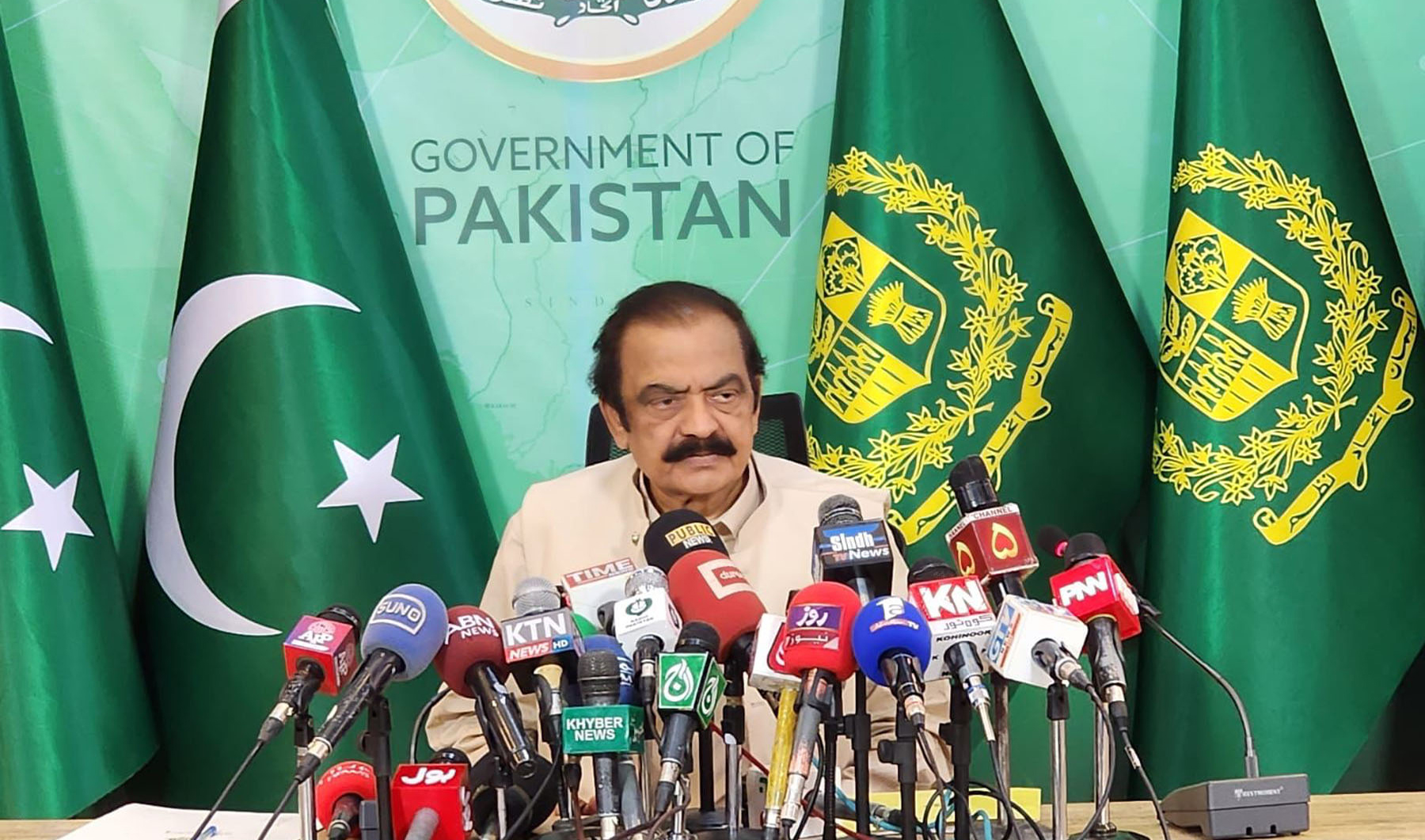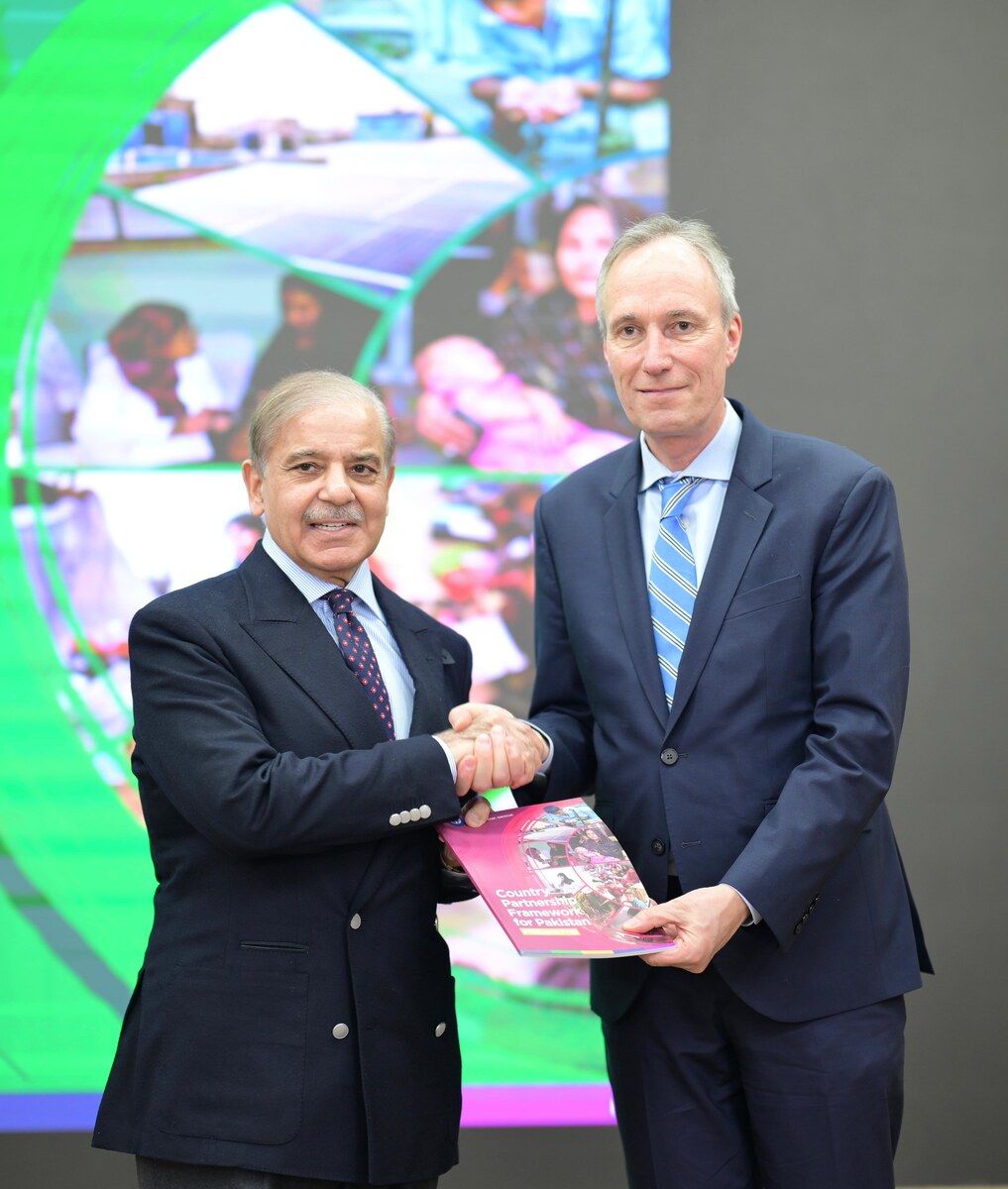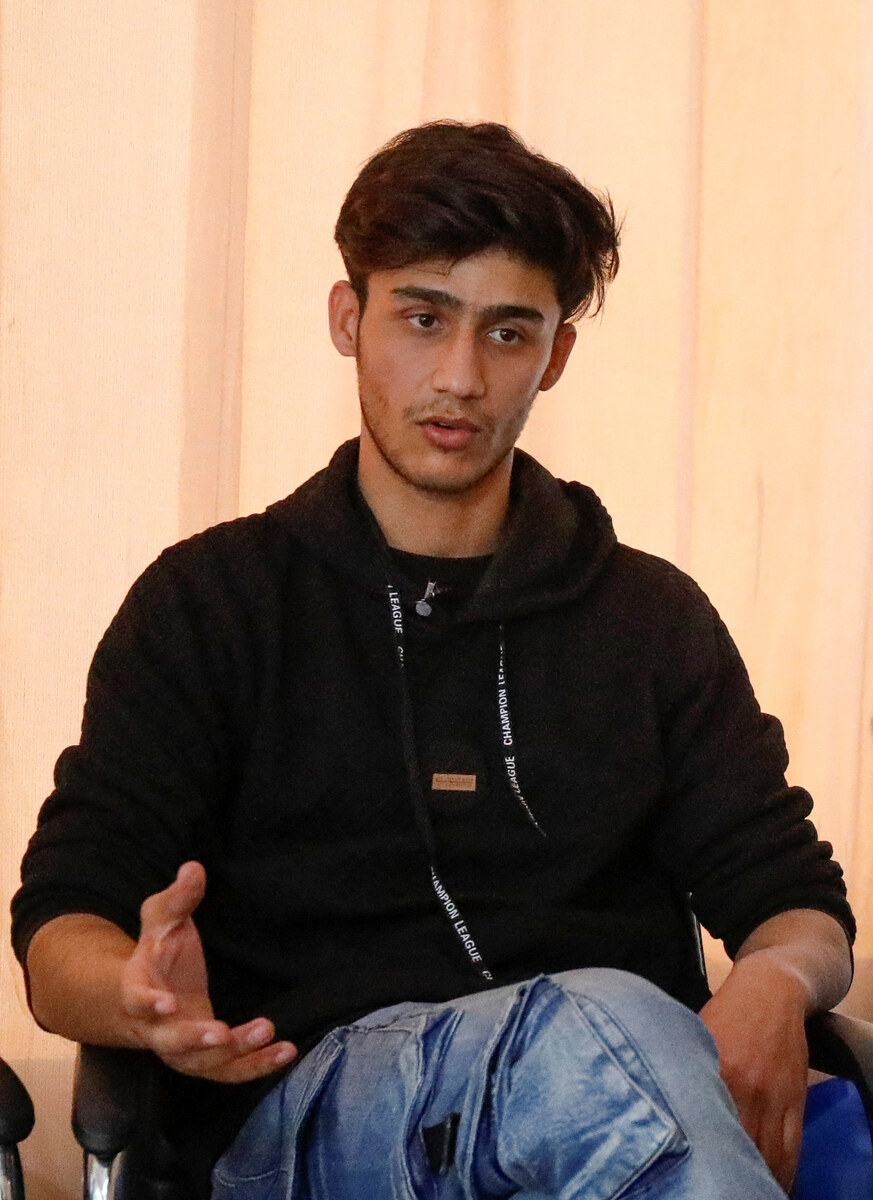ISLAMABAD: Pakistan’s Interior Minister Rana Sanaullah on Saturday called for banning former prime minister Imran Khan’s Pakistan Tehreek-e-Insaf (PTI) party, whose supporters clashed with police and set fire to public property in violent protests this week.
The protests began Tuesday when Khan was dragged out of a courtroom and arrested in the capital of Islamabad. His detention was met by violent protests by his supporters, who torched cars and buildings, including military installations. Hundreds were arrested in the aftermath.
Khan was released on Friday, but a long list of around 100 court cases, on charges ranging from fomenting violence to corruption, still stands against him. Khan said Friday that authorities only allowed him to travel when he threatened to tell the public he was being held there against his will.
Speaking at a press conference on Saturday, Sanaullah criticized Khan for encouraging his supporters in advance of his possible arrest to engage in violence. He said the violence that erupted in the country was not a public reaction, asserting that the ones involved in it were “trained terrorists.”
“People’s homes were torched, sensitive installations were attacked at his (Khan’s) behest, and banks were robbed,” the minister said. “There is no solution except a ban on this party.”
He accused Khan of “recruiting” these individuals and pushing the country into chaos.
“You tell me which political worker disembarks patients from ambulances and sets fire to them, torches schools, Radio Pakistan building,” Sanaullah asked.
“They were being listed, they were being trained, they were being brainwashed, they were being taught how to make petrol bombs.”

Pakistan's interior minister Rana Sanaullah addresses a press conference in Islamabad, Pakistan, on May 13, 2023. (PID)
In his address with supporters on Saturday, Khan distanced himself from the violence and said he wanted an “independent inquiry” into it, urging the country’s top judge to form a commission under his supervision for the probe.
He thanked the “peaceful public” that turned out in his support after his arrest.
Khan has a broad base of support around Pakistan. He presents himself as an outsider victimized by the military and the political dynasties that have long run the country. Opponents, meanwhile, call him a corrupt demagogue stirring his followers into violence.
Also on Saturday, Prime Minister Shehbaz Sharif gave a 72-hour ultimatum to the authorities to arrest the protesters involved in vandalizing and torching state properties, including the official residence of a top army general, and said he wanted them to be tried in an anti-terrorism court.
Army Chief General Asim Munir also expressed his resolve to bring all those responsible for targeting military installations.
The warnings came as a sign of further escalation in the long-running showdown between the government and Khan, who was ousted from power in a parliamentary no-trust vote in April 2022.
Khan won the 2018 election on an anti-corruption campaign, voted in by an electorate weary of decades of dynastic politics. Independent analysts say he was brought to power with the support of the military, before falling out with the generals.
The political crisis has simmered for months, with Khan attempting to disrupt the coalition government by dissolving two provincial parliaments he controlled and agitating for early elections.



















